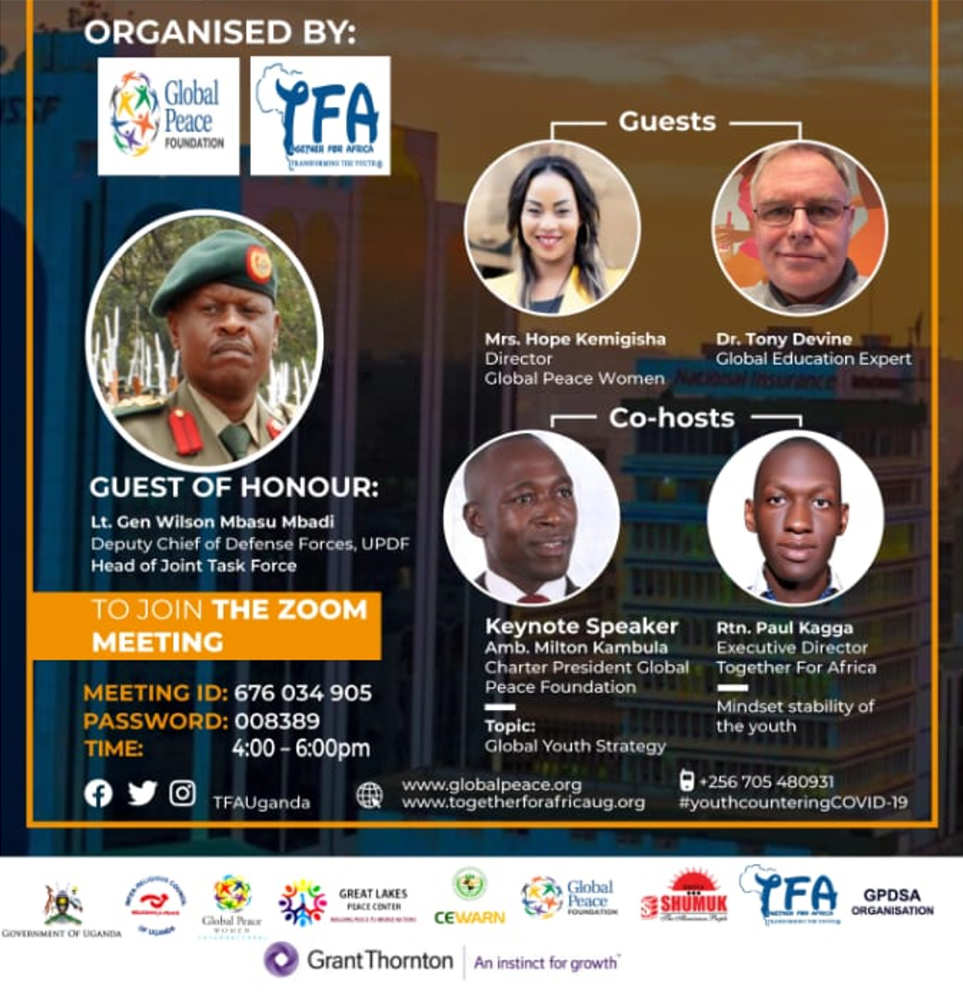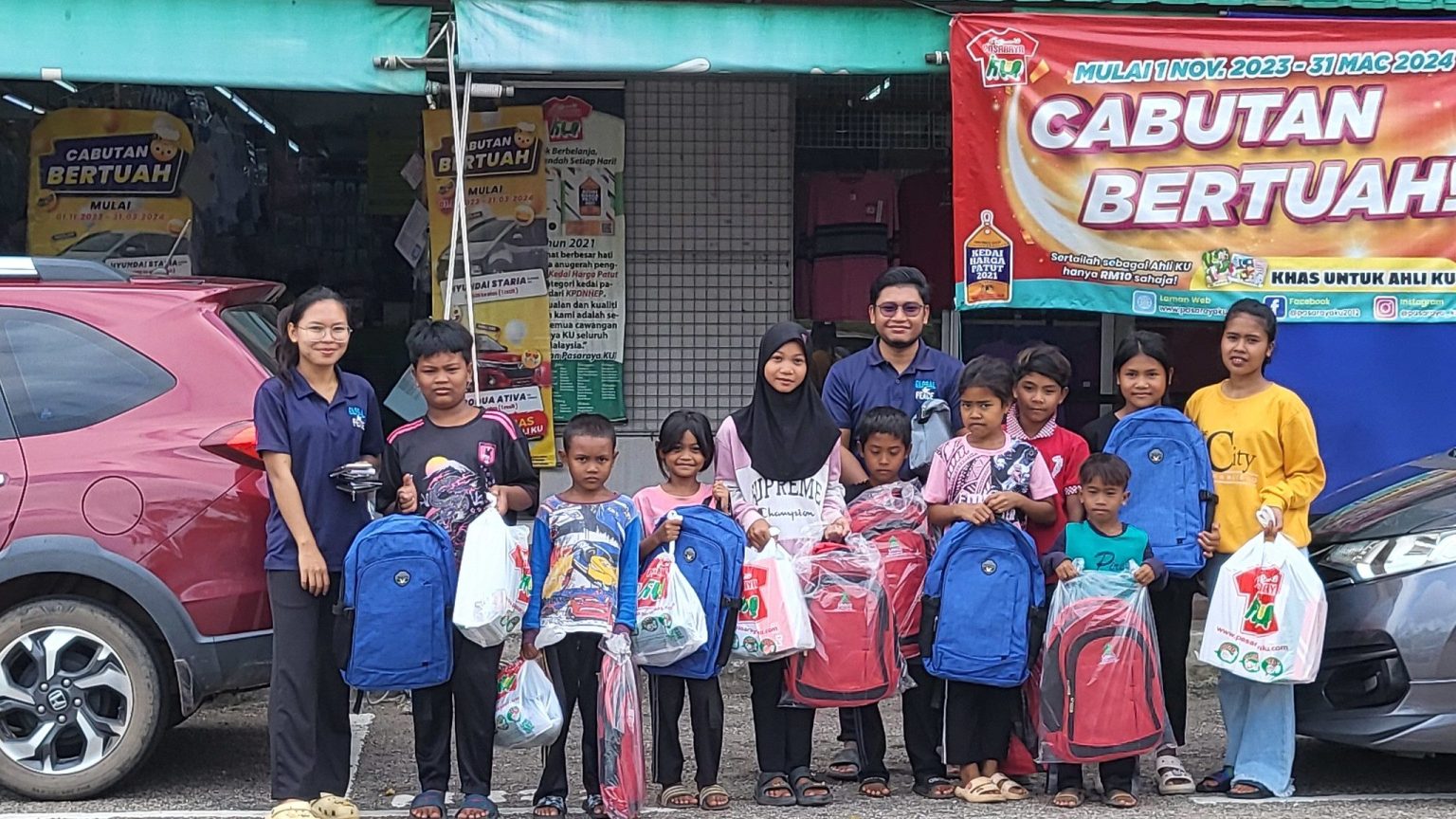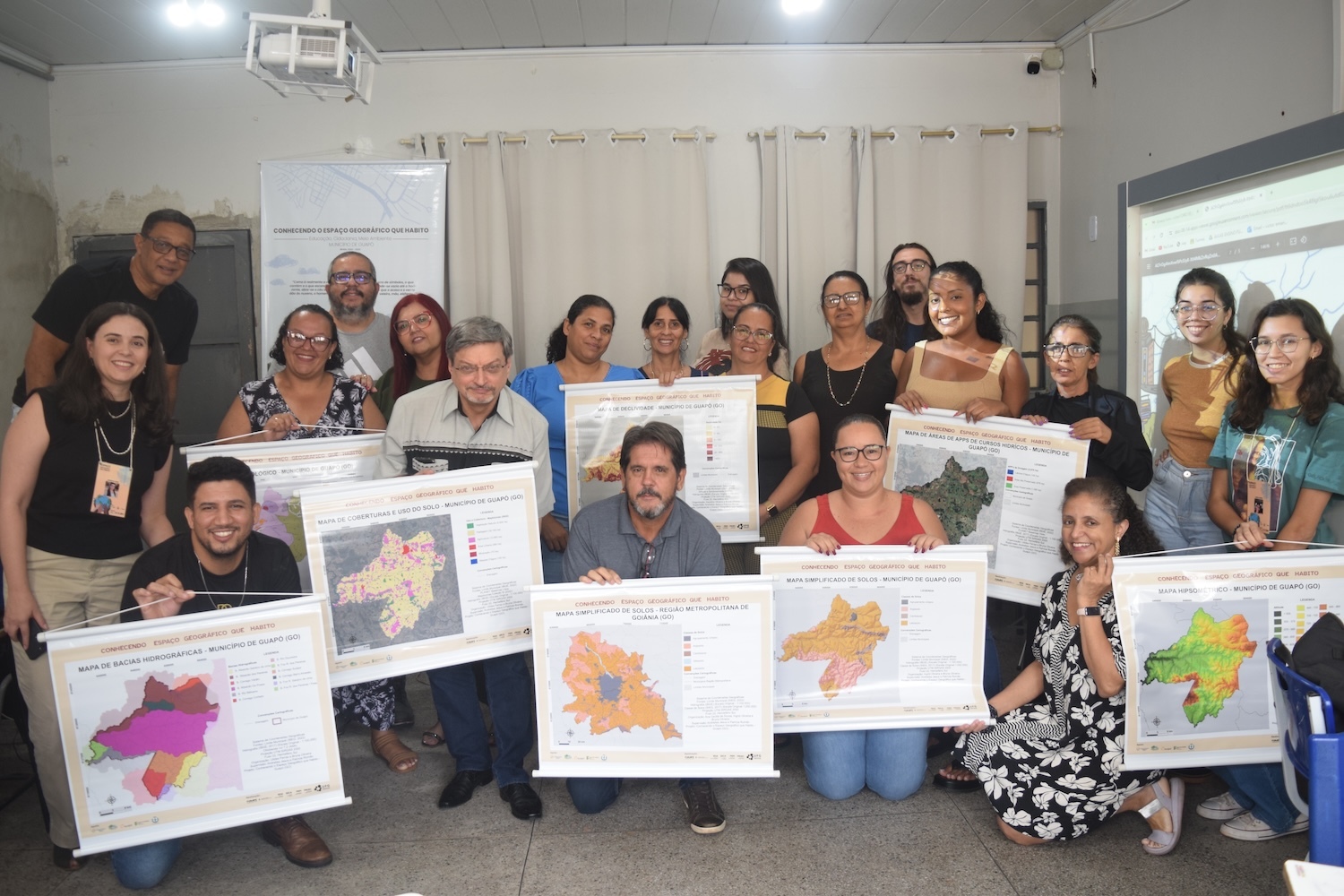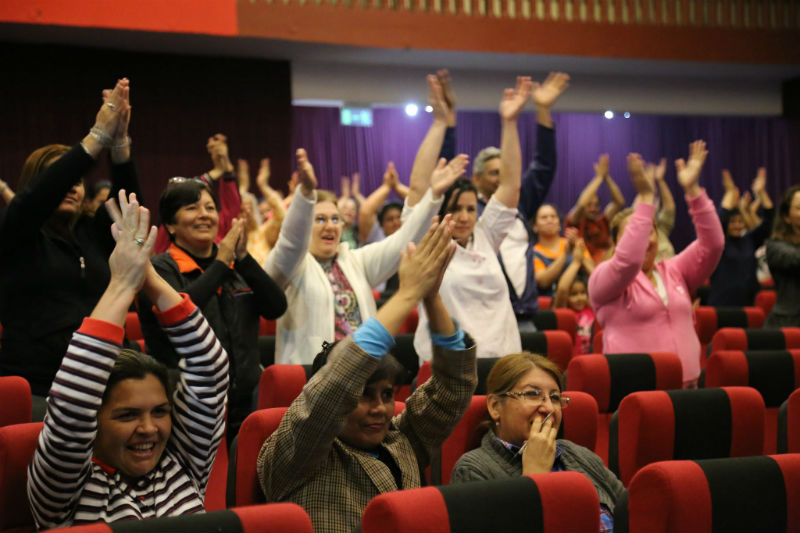Educators from across Uganda and East Africa participated in an Online Africa Regional Youth Summit on April 10, 2020, under the theme of “Countering COVID-19: Role of Youth and Teachers in Securing Africa,” sponsored by Global Peace Foundation—Uganda and Together for Africa along with other partners. Presenters propelled a forward-thinking paradigm for education, encouraging teachers, students, and administrators to look beyond the current pandemic to prepare for recovery and be optimistic about the opportunities for the future.
Africa is blessed with natural resources and vibrant spiritual and cultural heritages. However, the number one asset of any nation is its people and Africa is home to the largest youth population.
Several challenges and opportunities face these young people, including the threat of extremism brought on by religious and ethnic conflict. Therefore, a comprehensive vision and broad, long-term strategy are needed to engage multi-sectoral alliances in developing and carrying out grassroots applications to build peace and prosperity in localized regions.
In order to prepare students for a rapidly changing world, educators must provide support in three major areas: Economic, social, and environmental.
Economic: Scientific knowledge is creating new opportunities and solutions that can enrich our lives, while at the same time fueling disruptive waves of change in every sector.
Social: In large parts of the world, inequalities in living standards and life chances are widening, while conflict, instability, and inertia are increasing.
Environment: Climate change and the depletion of natural resources require urgent action and adaptation.
Moral and innovative leadership skills will be essential to sustainable development and peacebuilding. Naturally creative, youth guided by universal principles and values found at the heart of every spiritual tradition will be at the forefront of advancing technology and discovering solutions to propel humanity forward. Educators will play an imperative role in guiding young people to develop these values, skills, and knowledge.
The Character and Creativity Initiative launched in 2010 is helping teachers and students around the world, from Kenya to the Philippines, Paraguay, Malaysia, and Uganda work towards making education relevant to the 21st century. The program equips students with a moral and innovative mindset, better preparing them to be good citizens and good neighbors. It also seeks to develop initiative and flexibility of thought with an emphasis on personal responsibility and the creation of new opportunities.
Other programs mentioned in the webinar include Leap Hubs, a leadership, and entrepreneurship program piloted in Kenya in 2015, that provides guidance and space in secondary schools for highly motivated students to explore their ideas and learn what it takes to become business and social entrepreneurs. This combination of values and practical, innovative skills development emphasizes the equal importance of both human values and intelligence. Because technology itself is value-neutral, it must be guided by people of character to be useful for the greater good.
Youth have a high capacity to build peace. Not only are they the targeted demographic by extremist groups because of their passion and energy, but they are also the potential leaders in any society to promote counter-narratives against hate and radical ideologies. Youth are pioneers, inventors, and leaders.
Transforming education for our world’s youth will transform our world with leaders more capable of building sustainable peace. The online event was the first in a series that will be rolled out to building capacity in teachers, school principals, school systems, students, and parents during this unique time, as well as preparing learners for the recovery and the future.




